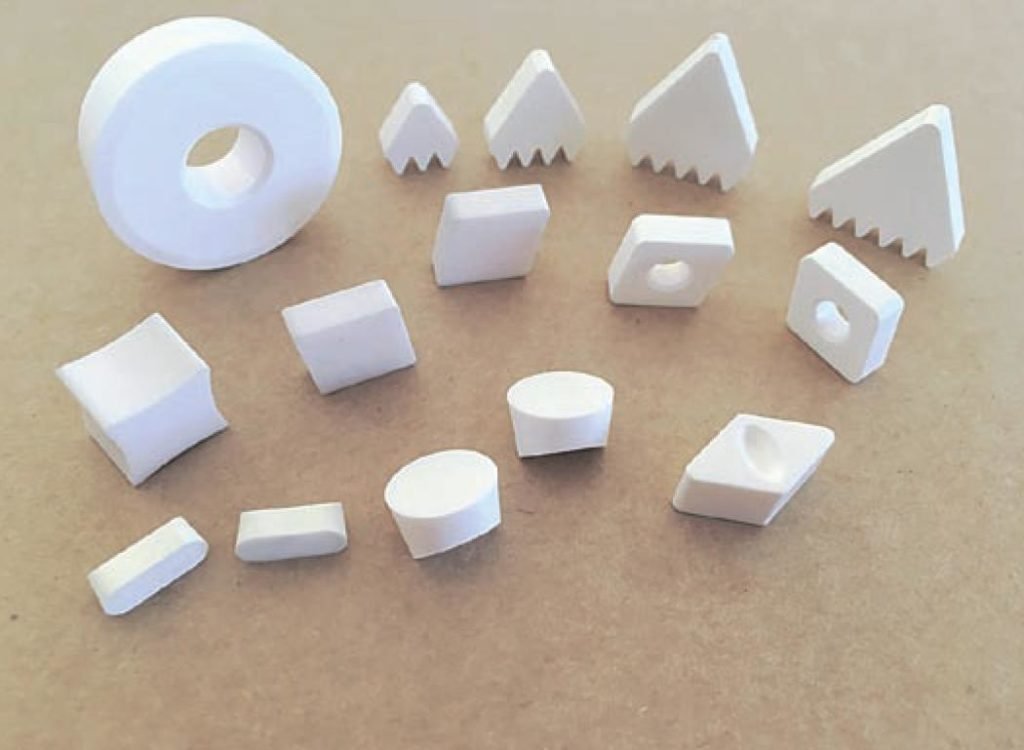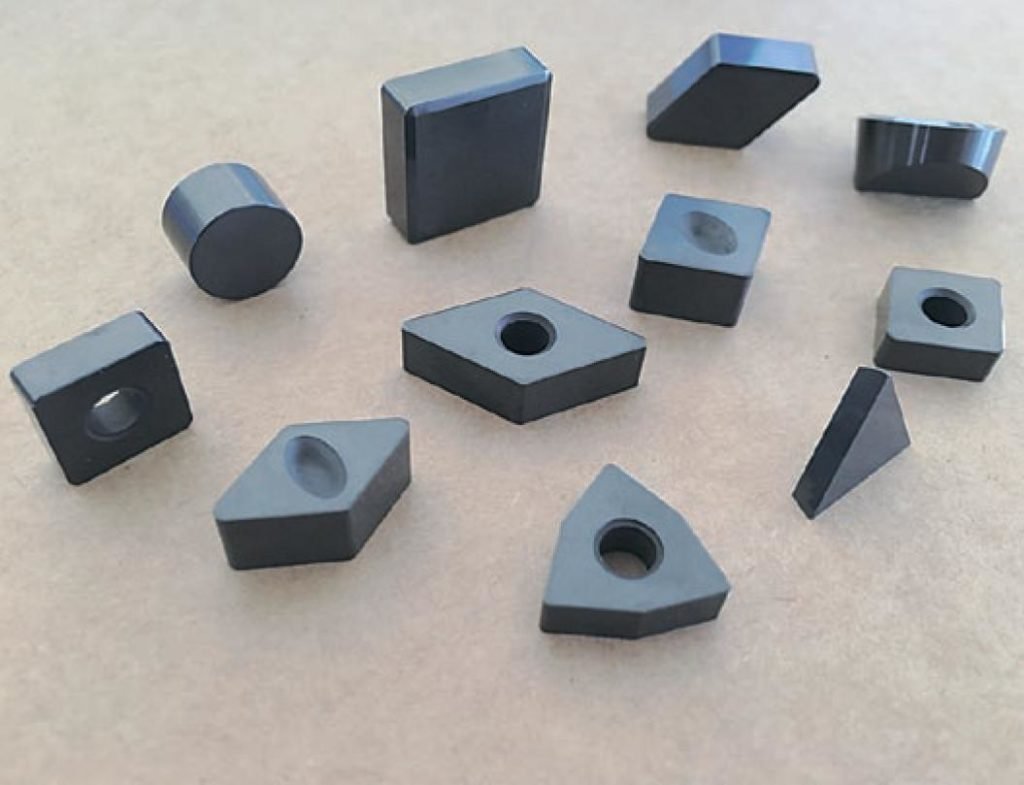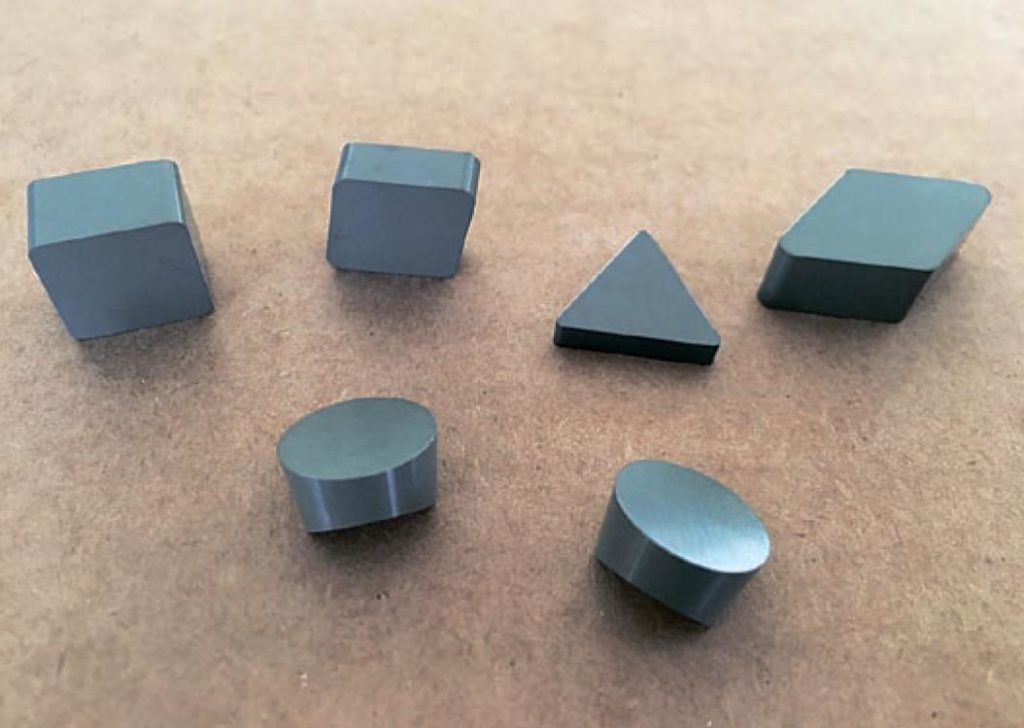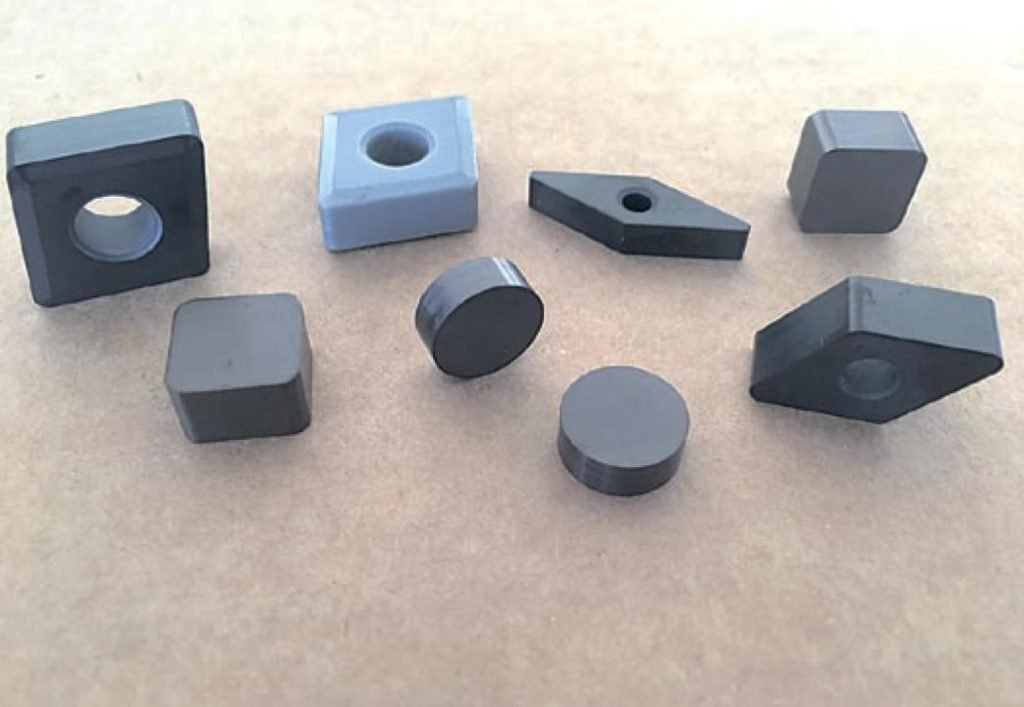In general, ceramic cutting tools have found applications principally in hard turning and milling cast irons and superalloys and in finishing hardened materials. For cutting tools, two kinds of ceramic composite materials are used, which can be differentiated according to the matrix materials. There are ceramics based on aluminium oxide (Al2O3) and silicon nitride (Si3N4). The key to successful application of ceramic cutting tools is to remember that they can take far more heat than do carbides, because they soften in the range of 2200°C versus about 870°C for carbide tools. Aluminium oxide-based ceramics are divided into pure, mixed and reinforced ceramics.
A range of ceramic cutting tool materials
- aluminium oxide (white) ceramics
- mixed (black) ceramics
- silicon nitride-based ceramics
White Ceramics
Alumina-zirconia (white ceramics) contains up to 10% ZrO2 in order to improve toughness. White ceramic materials are especially effective in steel finishing operations. Alumina with additions of up to 40% TiC or Ti(C,N)

Black Ceramics
Is exceptionally abrasion resistant and is used for machining chilled cast irons and hardened steels.

SiC whiskers ceramic inserts
Alumina reinforced with SiC whiskers is the toughest and most resistant to thermal shock of the Al2O3-based ceramics. SiC whiskers used for reinforcement are discontinuous, rod- or needle-shaped fibres in the size range of 0.1–1 µm in diameter and 5–100 µm in length (about 100 times longer than they are wide). The incorporation of SiC whiskers into the ceramic matrix results in the increase of strength, fracture toughness, thermal conductivity, thermal shock resistance and high temperature creep resistance. Because they are nearly single crystals, the whiskers typically have very high tensile strength on the order of 7 GPa and elastic Young’s modulus values up to 550 GPa. Unlike other such materials, it can be run with coolant. High-speed finishing of nickel/cobalt-based superalloys is a typical application for whisker-reinforced ceramic cutting tools.

Silicon Nitride. Si3N4 and SiAlON ceramic cutting inserts
Cutting tool materials based on silicon nitride include fully dense Si3N4 and SiAlON materials, which are solid solutions of alumina in Si3N4. Fully dense Si3N4 can have fracture toughness nearly as high as cemented carbides, high strength and a low coefficient of thermal expansion, which result in very good thermal shock resistance. The silicon-based ceramics are excellent in maintaining hot hardness at temperatures higher than those suitable for cemented carbides, and are tougher than aluminium-based ceramics. Tools made with this material are excellent for turning grey cast iron at cutting speeds over 400 m/min, and are also used for milling and other interrupted operations on grey iron. Coolant can be used for tuning applications. SiAlONs are typically more chemically stable than Si3N4 but are not quite as tough or resistant to thermal shock. They are mainly used in rough turning of nickel-based superalloys.

Related materials
- Download Ceracarb Ceramic Cutting Tools Catalog
- Ceramic Inserts For Hard Turning
- Ceramic Threading Inserts
- Ceramic Grooving Inserts
- Ceracarb Ceramic Tools
- Ceramic end mill blanks (ground ceramic rods)
Inquiry and quick order form
Please contact us if you have any questions, you need technical assistance or you want to place work order for ceramic cutting tools.
